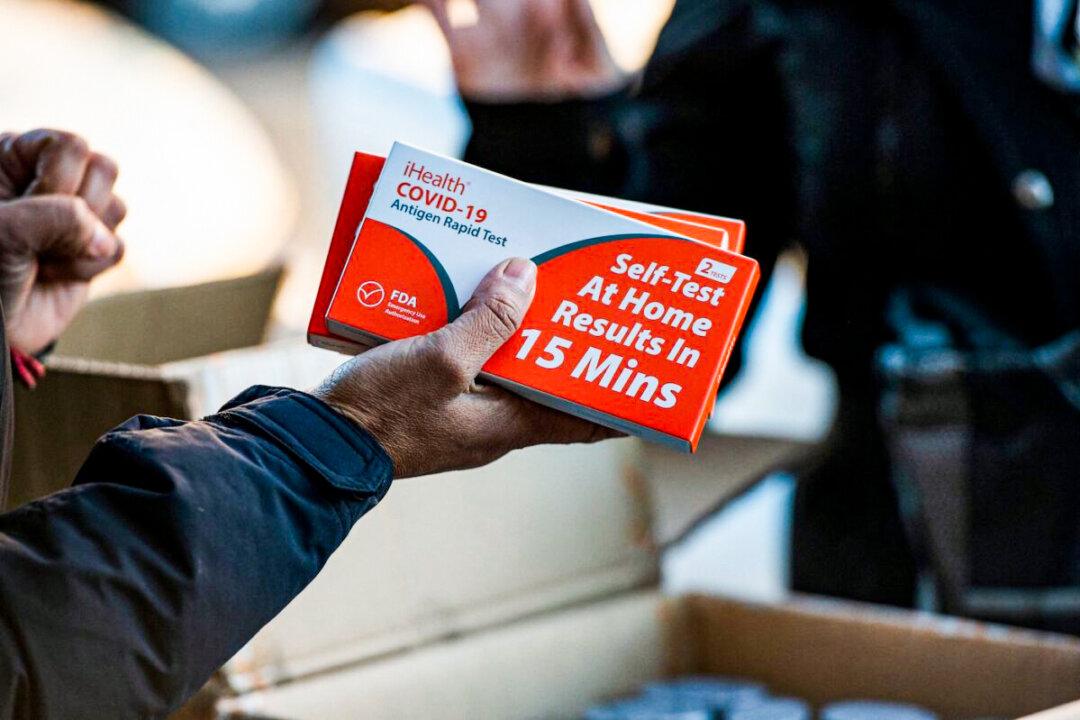CVS Health and Walgreens are no longer limiting the number of at-home COVID-19 tests customers can purchase at their stores, spokespersons for both companies have confirmed.
The two largest pharmaceutical chain stores in the United States announced in December—just days before Christmas—that they were limiting the number of at-home COVID-19 testing kits that customers could buy be due to “unprecedented” holiday demand for them.




